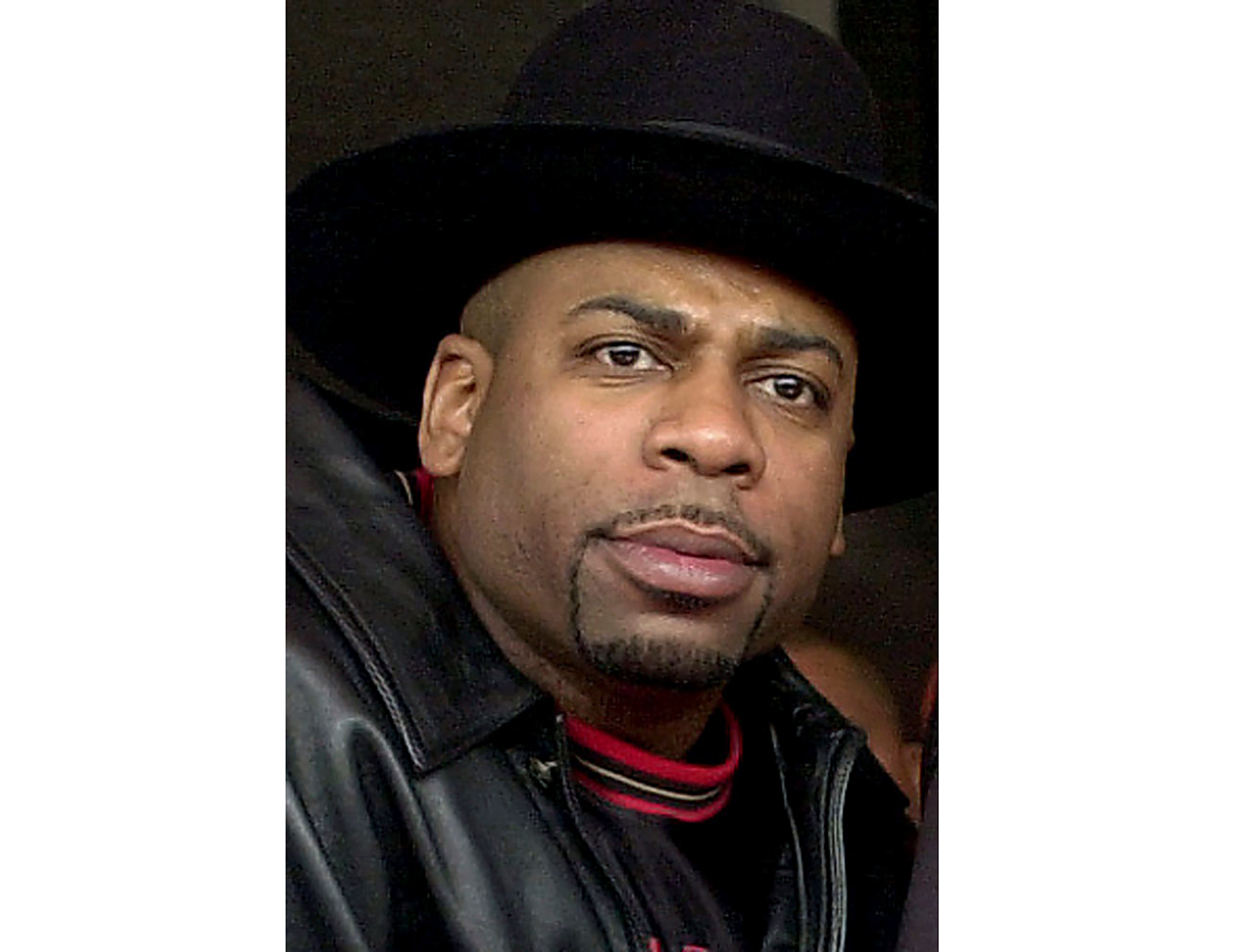Jam Master Jay dabbled in drug sales 'to make ends meet,' witness testifies
Jam Master Jay was known for his anti-drug advocacy as part of the groundbreaking rap group Run-DMC

Your support helps us to tell the story
From reproductive rights to climate change to Big Tech, The Independent is on the ground when the story is developing. Whether it's investigating the financials of Elon Musk's pro-Trump PAC or producing our latest documentary, 'The A Word', which shines a light on the American women fighting for reproductive rights, we know how important it is to parse out the facts from the messaging.
At such a critical moment in US history, we need reporters on the ground. Your donation allows us to keep sending journalists to speak to both sides of the story.
The Independent is trusted by Americans across the entire political spectrum. And unlike many other quality news outlets, we choose not to lock Americans out of our reporting and analysis with paywalls. We believe quality journalism should be available to everyone, paid for by those who can afford it.
Your support makes all the difference.A convicted drug dealer reluctantly testified Monday that Jam Master Jay — known for his anti-drug advocacy as part of the groundbreaking rap group Run-DMC — got involved in cocaine trafficking to pay his bills.
Ralph Mullgrav gave the first public testimony about the alleged drug dealing that prosecutors claim was the reason why the DJ was shot dead in his studio in October 2002.
Mullgrav said Jam Master Jay, born Jason Mizell, approached him periodically to sell cocaine that the rap star had acquired — “maybe 1 or 2 kilos, here or there.”
“Jason wasn't a drug dealer. He just used it to make ends meet,” Mullgrav said.
Two people close to the rap star, godson Karl Jordan Jr. and childhood friend Ronald Washington, are on trial in a case that has offered answers to the long-unsolved loss of a hip-hop legend while raising new questions about his life. Washington, 59, and Jordan, 40, have pleaded not guilty to murder.
Prosecutors have said the two men were going to be cut out of a lucrative transaction, which Mizell was arranging, to distribute 10 kilograms (22 pounds) of cocaine because a dealer — now identified as Mullgrav — wouldn't work with Washington.
Mullgrav told jurors that Mizell approached him in August 2002 to say he had a line on 10 or so kilograms of cocaine from the Midwest and “was asking me to move it for him” in Baltimore. Mullgrav lived there at the time.
Mizell wanted to put Washington, who's known as “Tinard,” on the ground in Baltimore, said Mullgrav, who grew up with both men.
“He wanted me to work with Tinard. I told him no,” Mullgrav said, because Washington “was a problem.” Mullgrav said he disliked Washington enough to want to shoot him when he appeared in Baltimore around that time.
Mullgrav spent 12 years in prison on a federal drug conviction before his 2013 release, and he acknowledged in court that he sold cocaine, with 25 or so people working for him.
He testified only after being arrested on a material witness warrant — a procedure that can be used to compel uncooperative witnesses to come to court — and spending seven days behind bars, said Gary Farrell, an attorney who was appointed to represent him.
Mullgrav had been brought to the stand Friday but balked at giving evidence. He was laconic in court Monday and wore a large medical-style face mask.
Mizell's family has insisted he wasn't involved in drugs. Run-DMC, the first rap group to notch gold and platinum albums and have a video on MTV, helped the genre gain a wide audience in the 1980s.
The trio was outspoken about opposing drugs. Run-DMC did an anti-drug public service announcement and shows and declared on the platinum-selling 1987 single “It’s Tricky" that “we are not thugs, we don’t use drugs."
Prosecutors — and some witnesses who were in the studio that night — say that Jordan shot Mizell while Washington brandished a gun and blocked the door.
Jordan’s attorneys have said he was at his then-girlfriend’s home at the time of the shooting. Washington’s lawyers have argued that he had no reason to kill a friend who was helping him financially.